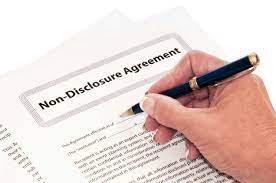Reasons Why Your Homeowner's Insurance Might Get Cancelled
Insurance for homeownership or "homeowners insurance" — protects you financially against your house and property losses. The insurance usually covers losses associated with fire, theft, vandalism, flooding, and more.
But even if you have coverage, there's still a chance your homeowner's insurance may get canceled.
Here's why:
Change In Circumstances
Often, homeowners insurance gets canceled when the insurance company discovers that the homeowner has purchased a new home. Whether the new homeowner's insurance is more expensive or does not offer the same level of coverage, the insurance company may refuse to renew the policy.
Non Disclosure Of Information

Another reason homeowners insurance might get canceled is that the insurance company discovers that the homeowner has failed to disclose important information. For example, they may cancel the policy if you do not tell them about a second home you own or have purchased a new home without telling the insurance company.
Changes In The Property
Yet another reason homeowners insurance might get canceled is when the homeowner makes changes to the home. For example, if the homeowner has remodeled their home or added a pool, the insurance company may cancel your policy.
The insurance company may also cancel the policy if the homeowner fails to pay their premiums.
Moving Out Of Your State

If you move out of your state, your policy might be canceled. Many state insurance departments have a list of companies licensed to sell policies in that state. If your policy had been canceled by that company, another company might not allow you to reinstate it in that state.
Opening New Lines Of Credit
If you apply for new lines of credit, such as a credit card, an auto loan, or a mortgage, your lender might require you to have your insurance through a carrier that your bank or lender works with. Most lenders require that you have insurance for a set amount, and if you don't, they may terminate your policy. Similarly, Your insurer might cancel a policy if your credit score goes down. A lower credit score means you're more likely to file claims, and insurers don't like that.
Fail to pay your premiums
Paying your premiums on time is very important to your insurance company. Insurance companies can cancel your policy if you fail to pay your premiums on time. Be sure to send any payments that the insurance company requires before the cancellation date.
Growing equity
If your mortgage balance is lower than your home's value, your home's equity is growing. Lenders prefer to see homeowners hold at least 20 percent of a home's value in cash reserves. If you hold 30 percent or more in cash, your insurer might cancel because that means you're too financially secure to need insurance.
Final words
Many insurers allow you to set up a payment plan to avoid having to cancel your policy. You can set up an automatic payments method from your checking account or set up payments through your bank. This way, you will be able to keep your policy for a long time.
Related Articles
- The insurance industry. Growing and Declining Sectors
- What are the principles of good insurance?
- Why Do You Need Travel Insurance?
- The Different Types of Insurance Companies
- Reasons Why Your Homeowner's Insurance Might Get Cancelled
- What Is Umbrella Insurance? How Does It Work?
- Factors affecting travel insurance costs
- Top 5 Homeowners Insurance Mistakes You Should Avoid Making
- What Is Insurance Proof?
- How Covid-19 has affected the Insurance Industry
Reading Rankings
- Insurance role in addressing climate change and sustainable development
- How To Make A Claim For Your Stolen Car
- The Top 5 Life Insurance Mistakes That People Make
- What You Need To Know About Auto Insurance For Teenagers
- How to get lower health insurance premiums
- The Benefits and Risks of Life Insurance. Do you need one.
- What Is The Role Of A Home Insurance Broker?
- Mistakes you may make when applying for homeowners insurance
recommended
![]()
How Covid-19 has affected the Insurance Industry
![]()
The role and importance of insurance
![]()
Mistakes You Can Make When Claiming Your Homeowner's Insurance
![]()
Understanding Mortgage Insurance and Homeowners Insurance
![]()
Top Insurance Providers in the World
![]()
Do I Require Insurance For My Home-based Business?
![]()
Which Is Better - Term Life Insurance Or Permanent Life Insurance
You might like
- The Benefits and Risks of Life Insurance. Do you need one.
- Top 5 Homeowners Insurance Mistakes You Should Avoid Making
- Challenges Facing the Insurance Industry Today
- Get homeowners insurance for bad roofs
- Top Insurance Providers in the World
- Reasons you may need to file a travel insurance claim
- Getting Homeowners Insurance With a Bad Roof
- Everyone Should Have These Insurance Policies







